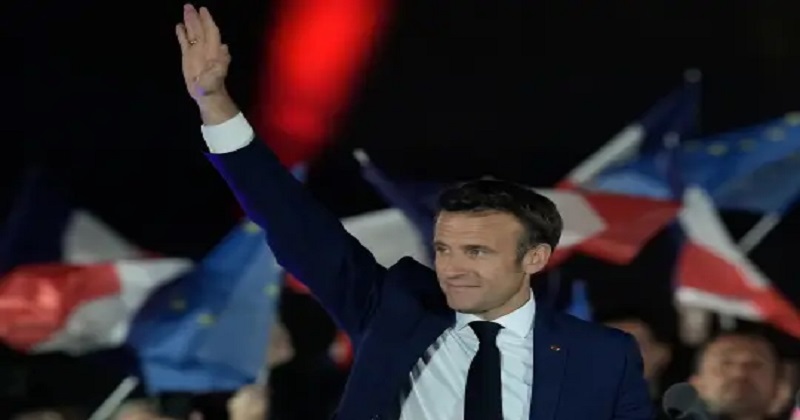
Emmanuel Macron’s triumph came not because he is a popular politician who can unite both sides of the political spectrum. Instead, they are tired of increasing inflation, rising unemployment, and massive immigration. All of these concerns were brought to the centre of the bruising presidential campaign by Marine Le Pen.
Furthermore, the hard-left candidate, Jean-Luc Melenchon, who lost in the first round two weeks ago, refused to urge the 7.7 million people who voted for him to support Macron. That is, Macron’s victory does not imply that France wanted him to be President, but rather that they wanted Marine Le Pen even less.
So, what does India think about an election taking place 8,553 kilometers away? When the Indian passport wasn’t encased in steel, you could drive from Delhi to Paris through Pakistan, Afghanistan, Turkey, Bulgaria, Bosnia and Herzegovina, Slovenia, Austria, and Belgium. Today, a Schengen visa obtained via France is subject to a slew of stringent requirements. These requirements are intended to close gaps that intrepid illegal migrants may use to flee the country.
This concern that illegal immigrants from underdeveloped countries would overrun mainly Catholic France has become the new normal. Marine Le Pen has pushed these issues to the forefront, and Macron has yet to address them. Still, the answer to who leads France is critical not just for France, but also for the European Union, in which it is ensconced, and the UN Security Council, of which it is a permanent member.
An Indo-Pacific power
The reason a reader of ThePrint should care who sits in the Elysée Palace is simple: France has an unusual tendency of doing something completely out of the ordinary and almost get away with it. Like the values of liberty, equality, and fraternity proclaimed by the French Revolution 223 years ago, which the Indian Constitution adopted with such zeal in 1950. (Of course, France briefly abandoned those objectives when it pursued colonization of Algeria with exceptional zeal and passion decades ago; to its credit, it has sought to wear warts from those horrible decades on its sleeve.)
France has not completely surrendered its territories. There are still a few scattered around the world, from Saint Pierre and Miquelon off the northern coast of Canada to Caribbean islands to French Guiana in South America to South Pacific territories like New Caledonia, Wallis and Futuna, and French Polynesia, which account for one-third of the Pacific Islands’ combined exclusive economic zone.
This, combined with minor possessions in the South Indian Ocean such as Reunion, Mayotte, Tromelin, and Iles Eparses, gives France the grandiose self-perception of becoming an ‘Indo-Pacific force’. Nonetheless, when India became nuclear in 1998, France was the only developed country that did not chastise New Delhi. The US and the UK slapped harsh penalties, and Russia, India’s old friend, was angry that it had not been informed in advance of India’s plans. However, France understood.
France is also the only other country, aside from the United Kingdom, to have been invited as the principal guest to India’s Republic Day festivities five times (1976, 1980, 1998, 2008 and 2016). France became the only other nation, aside from Russia, to sign a deal to sell nuclear reactors to India. This was soon after India received a dispensation from the Nuclear Suppliers’ Group to undertake nuclear trade in 2008.
The French have sold Scorpene submarines, Mirage fighter jets, and, more recently, Rafale jets — no question, the defence transactions have paved the way for a closer diplomatic relationship. Leaders on both sides have lavished the highest praise on the other. During a visit to Delhi in January 2016, then-President Francois Hollande stated his determination to ‘consolidate the strategic alliance’ with India, to which Prime Minister Narendra Modi answered, ‘India and France are meant for each other’.
The ‘new Russia’ of India
When Modi returned as Prime Minister for the second time in 2019, the relationship was in even better shape. President Macron made no mention of human rights violations in the state during his visit to Paris in August 2019. This was just weeks after the government invalidated Article 370 in Jammu and Kashmir and imprisoned half of the former state’s political class.
In reality, at the UN Security Council closed-door conference held by China in the aftermath of the 5 August abrogation—spurred on by Pakistan—France endorsed India’s position on Kashmir. Previously, France has supported a UN Security Council resolution condemning Pakistani terrorist Masood Azhar (one of three terrorists freed in exchange for the passengers of IC-814 in Kandahar in 1999), as well as tougher FATF penalties against Pakistan.
Many in Delhi and Paris began to refer to France as ‘India’s new Russia’ before long. Certainly, Macron has been an intriguing president over the last five years. Not least because he has spent several hours conducting shuttle diplomacy with Vladimir Putin over the Ukraine war. However, at the presidential debate, he accused Le Pen of being a Putin spokesman because she allegedly took a loan for her 2017 campaign through a Russian bank.
With the Ukrainian conflict in its second month – despite the fact that US officials Antony Blinken and Lloyd Austin were in Kyiv this weekend – the freshly elected Macron is expected to lead a unified European Union front against Moscow. The following weeks will undoubtedly be eventful not just for France’s new president, but also for the rest of the international community.

Post Your Comments